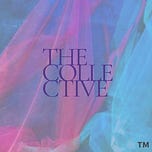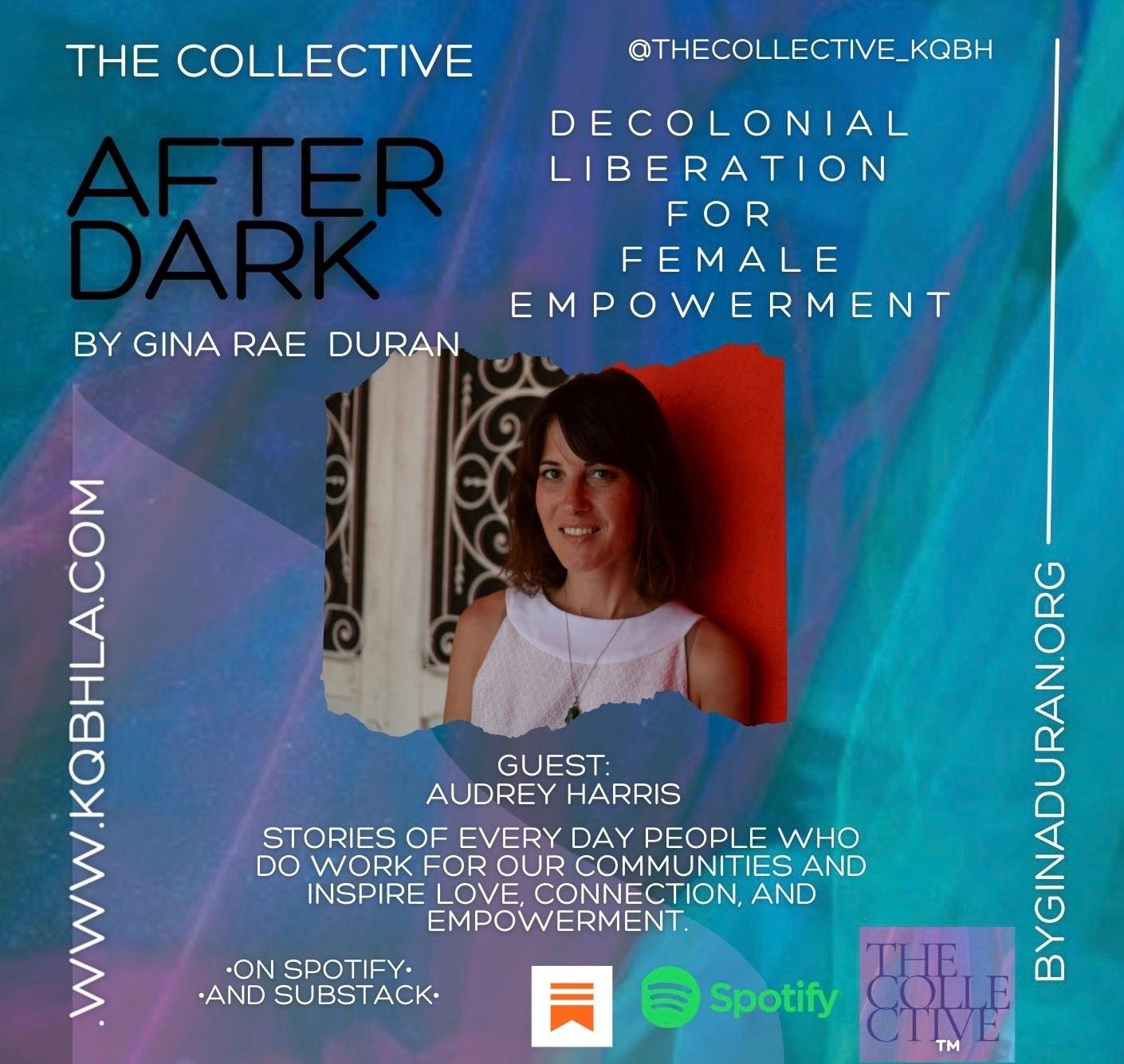A great conversation about feminine empowerment just as elections are rolling in. This will also air on The Collective, Sunday, November 10, 2024, 3-4 pm PST on kqbhla.com.
Dr. Audrey Harris (Fernández)
Dr. Harris Fernández received her Ph.D. from UCLA in 2016 in Hispanic Languages and Literatures. Her dissertation, De lo máspobre y de lo más lindo: Transnational Borges and Sandra Cisneros, considers how both writers challenge Western notions of time, space, and individual identity in their writing, as well as their shared interest in local ways of life of working classmigrant communities in the Américas. She teaches in the César E. Chávez Department of Chicana/o and Central American Studies at UCLA, and has also taught in the Cal State system.
With the support of a Mellon Public Scholars Fellowship, Dr. Harris Fernández directed the multimedia project Nos contamosa través de los muros (We Tell Our Stories through these Walls)based on her writing workshops in 2015-16 in a Mexican women’s prison in Mérida, Yucatán. She has also taught writing through the UCLA Prison Education Program at the Santa Fe Springs Community Reentry Program. Together with the class she edited an anthology of texts from that class highlighting issues of social justice for women in prison, entitled Liberating Fictions. Broadly she is interested in women’s storytelling on both sides of the border, spanning subjects including traditional women’s arts, community displacement and environmental injustice, cautionary tales, and sacred encounter narratives. Drawing on her own autobiography, she is interested in why women leave patriarchal religions, in what they carry with them and what they discard, and in the development of anti-patriarchal and decolonial spiritual beliefs. Her poem “The Fourth Wife,” published in Sunstone, explores the history of polygamy in her family through the story of a woman who escaped. Her essay “Mama Married a Mormon,” forthcoming in Flowersong’s anthology The White Picket Fence, is a story of unrequited love that describes the conflicting feelings of liberation and of spiritual yearning she experienced when she left the church as a young adult.
Dr. Harris Fernández is a 2023-24 recipient of a California Arts Council/ Los Angeles Performance Practice Emerging Artist Award. Her writing and translation has appeared in The Paris Review, Harpers, Huizache, The Los Angeles Review of Books,Sunstone, and elsewhere. Together with Matthew Gleeson, she translated Amparo Dávila’s influential story collection The Houseguest and Other Stories, (New Directions, 2018).
Dr. Harris Fernández has taught internationally, both as 2018 Director of UCLA’s Study Abroad Program in Buenos Aires, and at Mexico City’s Cineteca Nacional (Mexican National Film Archive). In addition to her student mentorship work, she has been a contributing member of the Prison Education ProgramWorking Group.
Education:
Ph.D. Hispanic Languages and Literatures, UCLA, 2016
M.A. Hispanic Languages and Literatures, UCLA, 2011
B.A. Stanford University, English (minor: Spanish), 2004
Selected Publications:
“The Personal Narrative through Myth and Memory: Teaching Borges and Sandra Cisneros in Latina Literature and Prison Writing Courses.” Approaches to Teaching Jorge Luis Borges. Modern Language Association. Forthcoming 2024.
“Coyolxauqui’s Bent Heart: An Interview with Richard Villegas, Jr.” MELUS. (Peer Reviewed) Forthcoming 2024.
“Ciertos fantasmas de la tradición literaria mexicana: La desaparicióny resurgimiento de Amparo Dávila.” Alba de las Américas.
“The Androgynous Mind: A Woolfian Reading of Jorge Luis Borges.” Variaciones Borges. (Peer reviewed). April 2022.
“Two Mayan Tales from the Cereso de Mérida.” Transmotion Special Issue: Native American Narratives in a Global Context. Vol 5, no 1, July 2019, pp 166-183.
“Yo Soy Gregorio Cortez: Américo Paredes and the Mexican American Immigrant.” The Aztlán Mexican Reader. AztlánPress, 2018.
Multimedia:
“Voces de la cárcel/ Voices from a Mexican Women’s Prison.” 18 July 2016. Web. http://vocesdelacarcel.wixsite.com/vocesdelacarcel
Classes:
CCAS 109: Chicana/o Folklore
CCAS 105F: Gender, Fiction and Social Change
CCAS 111: Chicana/o and Latina/o Intellectual Traditions
Chicano Studies 155A: Chicana/o Narrative
Chicano Studies 155B: Literature of the Chicano Movement
Listen in on The Collective for poetry and more, this Sunday on @kqbhla, 3-4pm PST, on 101.5fm in Los Angeles area, world wide on kqbhla.com, or nationwide on the LPFM La app.
This episode was previously recorded and edited for live radio. You can also find all the links to KQBH, Spotify, and Substack on @byginaduran’s website at byginaduran.com. Link in bio.
We are all apart of the collective. It is not a special group or community out of anyone’s reach. The trees, the earth, the plants, the insects, the animals, and humans are all apart of the collective. We each have something to give to the world and our communities around us. It’s in knowing how to care for the ones we love, the air we breathe, the water we drink, and the food we eat. It is all self-care. Community care is self-care. And together we are more than community, we are like the stars singing in the sky. We are music and our voices are the hum of the universe. Because we are of the earth and things of stars, and so is every thing on this earth.
Thank you for listening in on the conversation. I hope that we can all come together to create positive change. May this only be a beginning towards healing.














Share this post